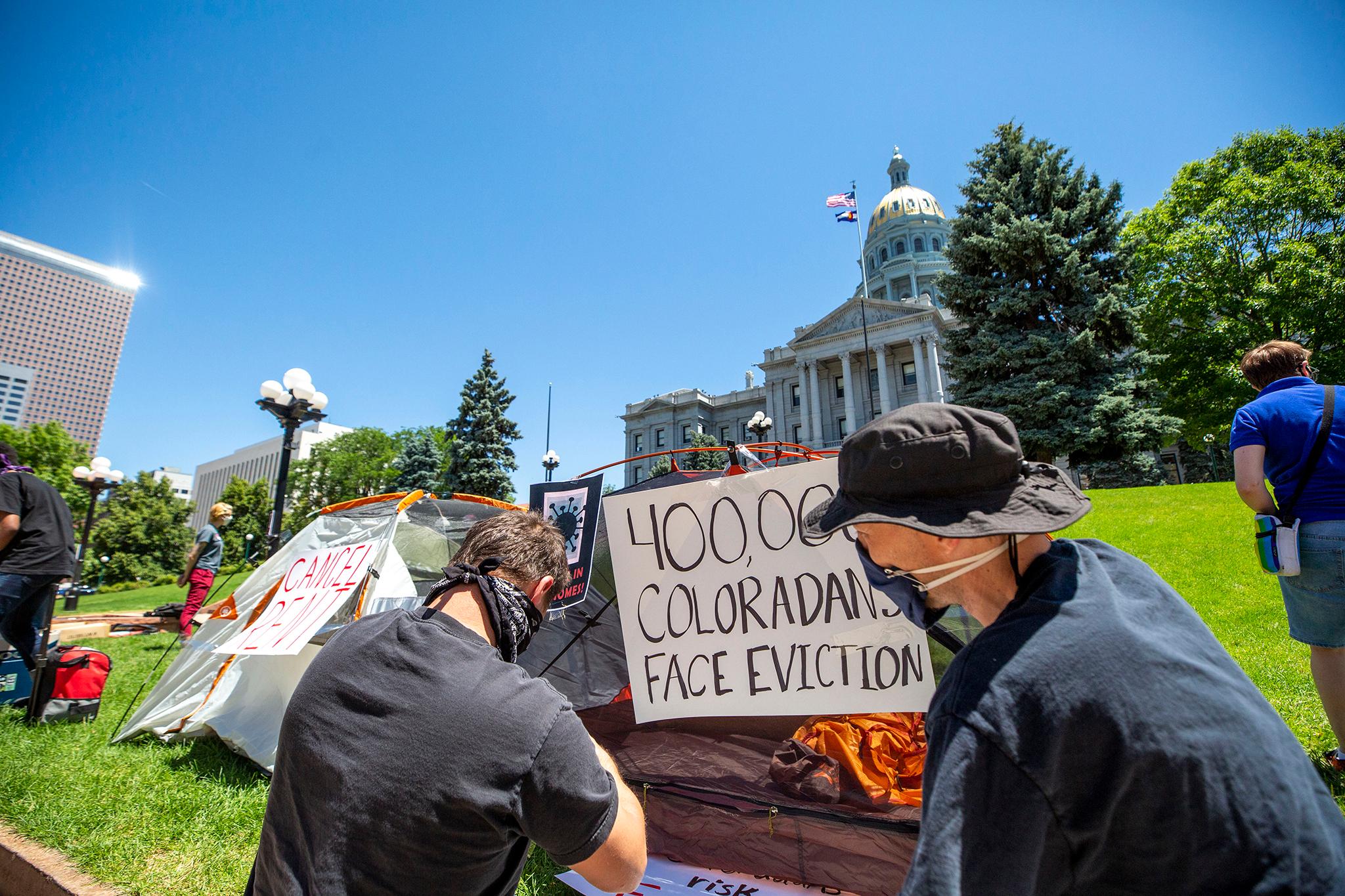
Colorado courts are still seeing record low numbers of eviction case filings. That’s even though the U.S. Supreme Court struck down a federal ban on the practice this summer.
Landlords filed 2,498 eviction cases across the state last month, according to a new analysis from the Colorado Apartment Association, the state’s largest trade group for rental property owners. That’s 66.3 percent of the number filed in September 2019.
“Eviction lawsuits have been abnormally low throughout the pandemic,” Drew Hamrick, senior vice president of government affairs at CAA, said. “The expiration of the eviction moratorium allowed our housing markets to return to normal, and that return hasn’t brought a surge in eviction filings.”
After an extension of the Centers for Disease Control and Prevention’s eviction moratorium was blocked in August, renter advocates feared landlords might flood local courts this fall. But so far that hasn't panned out.
Federal and state assistance programs have helped resolve many cases where tenants could not pay rent, according to the CAA analysis. Colorado received more than $247 million in rental assistance funding from the American Rescue Plan earlier this year.
Colorado has processed more than 50,000 emergency rental assistance requests to landlords since the pandemic began, according to data from the Colorado Division of Housing. About 4,000 requests have come in the past several weeks and are still waiting for review.
The large numbers indicate that many renters are still struggling to recover from the economic roller coaster over the past year and a half, said Zach Neumann, who co-founded the COVID-19 Eviction Defense Project, a Colorado nonprofit that works with tenants.
“[Eviction filings] are the tip of the iceberg when it comes to housing instability,” Neumann said.
Looking ahead, CAA’s report indicates the low numbers of eviction case filings mean actual forced move-outs likely won’t spike any time soon. Evictions can take up to three months to make their way fully through the court system and result in a forced move-out involving law enforcement.
Colorado also recently adopted new laws that cap late fees and also extend deadlines for making up missed rent payments. Those went into effect on Oct. 1.
“This continuation of low eviction filings through September signals that there will be very few sheriff-assisted move-outs over the coming months,” CAA said.









